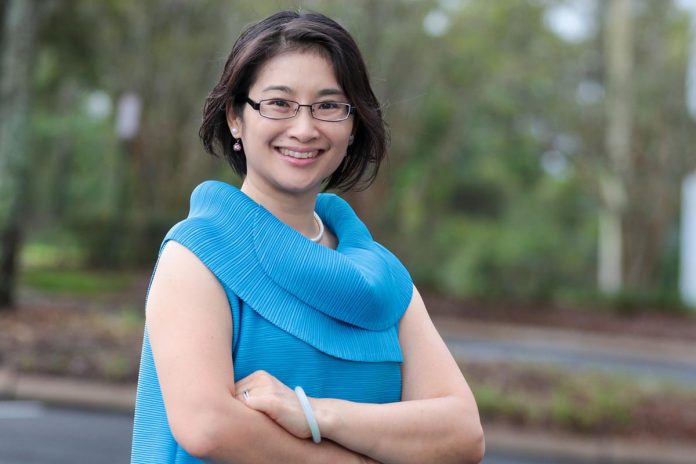Language difficulties and cultural barriers keep an “alarming” number of Chinese Americans from asking for cancer screenings that may protect their health, according to a new UCF study.
Su-I Hou, professor and interim chair of UCF’s Health Management & Informatics Department, said her results show that physicians and members of the Chinese community need to improve their communication about the importance of cancer screenings. Her study was recently published in the Asian Pacific Journal of Cancer Prevention.
Hou surveyed 372 Chinese adults who attended churches providing services in Mandarin in the U.S. and Taiwan to assess their knowledge of cancer risks and whether they asked their primary care provider about cancer screenings. She found that Chinese adults seldom asked about screenings – even if they had family cancer history or had been a primary caregiver for someone with cancer. Chinese adults with family cancer history asked about cancer screenings only 32.2% of the time, and those without family cancer history asked only 21.5% of the time. Chinese cancer caregivers asked about cancer screenings 48.3% of the time. Non-caregivers asked only 23.4% of the time.
Hou said age was a factor in whether Chinese adults questioned their doctors about cancer screenings. Even though cancer risks increase with age and cancer screening communication is higher among the older age group, she said older Chinese participants may be the most reluctant to ask about screenings. She attributed this to traditional Chinese culture, in which questioning an expert can be regarded as disrespectful. She said younger Chinese adults may be more willing to question their healthcare provider – and thus are more likely to be their own healthcare advocates.
She said analysis of patient-provider communication was overall low and statistically similar between Chinese adults living in Taiwan and those who had immigrated to the United States.
“Chinese culture and language difficulties are deterrents to open dialogue between these patients and their providers,” she said. “The Chinese culture teaches respect to authority and in our culture, the doctor is the authority. To question a physician is seen as a sign of disrespect.”
The disconnect in patient-provider communication is especially alarming, she said, because cancer is the leading cause of death among Chinese Americans and that risk is growing as they adopt a more Western lifestyle, including unhealthy eating habits.
She centered her research on churches, noting that many new Chinese immigrants join a faith-based organization with services in Mandarin as a way to meet fellow Chinese and engage in an environment where their native language is spoken. She said such churches can help spread the word about the importance of cancer screenings and health advocacy and can help teach parishioners how to request screenings from their providers.
She said it’s also incumbent upon providers to understand that their Chinese patients may be reluctant to be their own healthcare advocates. For that reason, she said, providers need to bring up the topic of cancer screening – even if their patients do not. Many of the survey participants said they did not ask about cancer screenings because their provider did not raise the subject.
Hou is part of UCF’s Population Health Consortium, which includes interdisciplinary faculty from across the university who are dedicated to implementing best practices and eliminating health disparities.
“We all need to work together to recognize the barriers to providing quality healthcare to all,” she said. “This study is another example of the importance of understanding cultural norms as we provide care.”








